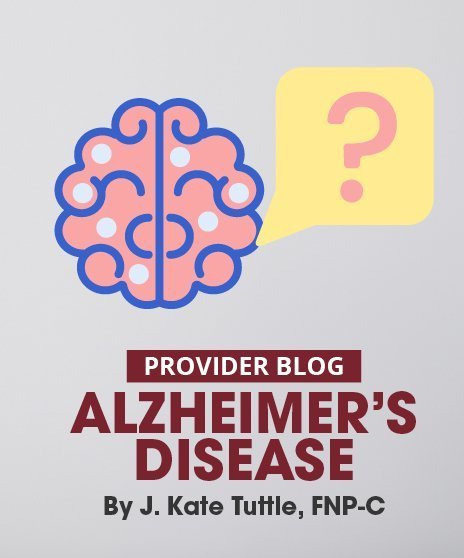Alzheimer’s Disease
Alzheimer’s Disease is a progressive and irreversible form of dementia that generally effect the parts of the brain responsible for memory, thought formation, and language. According to the Centers for Dementia Control and Prevention (CDC) Alzheimer’s Disease effects roughly 5.7 million Americans and is the sixth leading cause of death amongst adults at any age, the fifth leading cause amongst those 65 and older. While treatments are available to slow the progression of dementia, this dementia eventually progresses in all those affected. While there is no clear cause of Alzheimer’s Disease it is thought that activities that stimulate the brain and thought process like number games, cross words, puzzles, and reading help to preserve normal brain function.
Signs of Alzheimer’s Disease
Often, the earliest sign of Alzheimer’s Disease is memory impairment. The CDC indicates that symptoms do not generally occur before the age of 60, commonly presented closer to age 65 and include impaired judgement or reasoning skills, poor recall, and sometimes changes to mood or personality. Although some memory decline is expected as we age, impairment that includes trouble handling money or paying the bills, difficulty completing familiar tasks, repeatedly asking the same questions, or inability to recall directions to frequently visited locations are of greater concern and should prompt a visit to your primary medical provider.
Diagnosing Alzheimer’s Disease
When visiting your primary care provider for memory impairment, a series of in office questionnaires are usually the starting point for diagnoses. Lab tests are often done to rule out other possible causes of memory loss. Depending on the extent of testing done in the primary care office, you may be referred to a neurologist for further evaluation and to formulate a treatment plan that works for you.
Trajectory of Alzheimer’s Disease
Unfortunately, there is no cure for Alzheimer’s Disease and in every case, there is progression. The goal of treatment is to slow the progression and to preserve functional quality of life. So, the earlier a diagnosis can be made, and treatment started, the better. Every individual will progress through stages of Alzheimer’s at different rates but with all cases of dementia progression there is increased memory loss, impaired motor skills, and changes in mood and personality. Along with early diagnoses and treatment, advanced care planning is of vital importance. This is something that should be discussed on an ongoing basis and can be facilitated by, or include, your primary care provider.
The future of Alzheimer’s Disease
While modern medicine does not currently have a cure for Alzheimer’s Disease, there is a significant amount of research and funding towards finding a cure. Current research also supports incorporating diet and exercise, brain stimulating activities, as well as management of other chronic conditions such as high blood pressure and diabetes, as ways of decreasing the chances of developing Alzheimer’s Disease.
Additional Information and Resources
Below are links to additional information and resources for those directly, or indirectly, effected by Alzheimer’s Disease.
The National Institute on Aging:
https://www.nia.nih.gov/health/alzheimers-dementia-fact-sheet#treating
Centers for Dementia Control and Statistics:
https://www.cdc.gov/aging/aginginfo/alzheimers.htm
The Alzheimer’s Association:
https://www.alz.org/alzheimers-dementia/what-is-alzheimers
The Alzheimer’s Foundation of America:
https://alzfdn.org/


